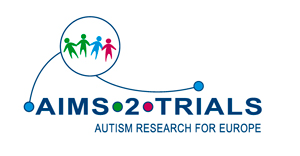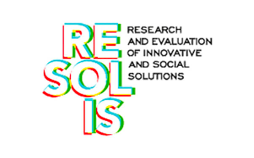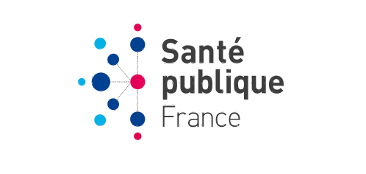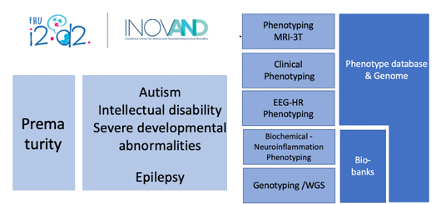
Research projects

The brain injury in the premature born infant: stem cell regeneration research network
PREMSTEM is a collective of clinicians, researchers, stakeholder advocacy groups and a world-renowned industrial partner with established experience in neonatology and drug development.
PREMSTEM is committed to providing the clinic with a new regenerative therapy to reduce the severe emotional, health and economic implications of neurodevelopmental damage caused by Encephalopathy of Prematurity – brain damage associated with premature birth (i.e. before 37 of 40 weeks gestation). Advances in perinatal medicine, including respiratory support, often allow even the smallest and sickest babies with encephalopathy of prematurity to survive, but there is currently no treatment to repair the brain damage caused by preterm birth.
PREMSTEM aims to validate umbilical cord-derived human mesenchymal stem cells as a regenerative therapy to improve the quality of life of premature babies.
Scientific coordinator of the project:
Pr. Pierre Gressens, UMR 1141 Inserm/University of Paris

Pre-School Brain Imaging and Behaviour Project (PIP)
The PIP project is the first European study to follow the development of pre-school children with and without autism and related neurodevelopmental disorders.
The aim of the study is to identify biomarkers that can be used to predict how children with neurodevelopmental disorders and epilepsy develop and which children may have one or more of these conditions. PIP also aims to identify children who may benefit from early support for communication, language and sensory processing.
The study involves children aged 2 to 3 years who will be followed for 3 years. The study involves researchers from Belgium, France, the Netherlands, the UK and Sweden.
Scientific coordinator of the project in France:
Pr. Richard Delorme, Department of Child and Adolescent Psychiatry, Robert Debré Hospital.

Identification of genetic factors involved in neurodevelopmental conditions in multiplex families (Multiplex)
Multiplex is the first study to track the heritability of rare genetic risk variants for several neurodevelopmental disorders. NDDs probably result from a combination of rare genetic variants and many common low-risk variants. This study focuses on families with at least two children with NDDs.
This study focuses on ‘multiplex’ families defined as families with one child with autism and at least one other child with autism, intellectual disability, ADHD or epilepsy, as well as unaffected siblings where possible. All participants will be assessed directly by a psychiatrist or psychologist who is an expert in these fields and who is experienced in the use of standardised or semi-standardised clinical instruments.
The Multiplex study will provide data on the molecular pathways involved in these different disorders. Thus, it moves away from categorical classifications of diseases towards understanding the common and distinct mechanisms of neurodevelopmental disorders. The overall goal is to identify treatment targets based on aetiology (cause of the condition) and not only on symptomatology (symptoms of the condition).
Scientific coordinator of the project:
Pr. Richard Delorme, Child and Adolescent Psychiatry Department, Robert Debré Hospital

Documenting the social environment of patients with Autism Spectrum Disorder (ASD) followed at InovAND (Robert-Debré Hospital)
The Excellence Center InovAND and the Association RESOLIS have received funding from the CNSA to try to better understand the social environment of patients with Autism Spectrum Disorder (ASD) followed at InovAND (Robert Debré Hospital).
Despite major efforts by public authorities in recent years, and even with the benefit of an established diagnosis, the care of children remains complex and insufficiently coordinated.
The objective of the project is thus twofold:
– To develop a better knowledge of the actors working with children suffering from ASD in the territories of direct proximity of the hospital and to enrich the understanding of the social environment of children diagnosed by the hospital.
– To promote better cooperation between the resources of the territory and the hospital in order to improve the pathway for parents caring for children with ASD.

Better understanding of neurodevelopmental disorders in school-age children
The Excellence Center InovAND is leading, under the direction of Santé Publique France, a study to better understand school-age mental health “Better understanding of neurodevelopmental disorders in school-age children: follow-up of 30 000 school-age children”.
InovAND, via Pr. Richard Delorme, heads the scientific committee in charge of the survey on the mental health of children under 11 years of age, for which public health data are missing or are very sparse, especially for neurodevelopmental disorders.
The crisis linked to the COVID-19 pandemic has raised a strong need and demand from professionals, parents and young people alike, for support, care and prevention of mental health disorders in children and young people.
This permanent survey on children’s mental health will make possible to measure and to monitor over time the state of mental health in children in order to describe the different dimensions of mental health and to identify the circumstances, the determinants and the impact on well-being or quality of life.

Website CléPsy
The Excellence Center InovAND has fostered the deployment of a digital platform whose main objective is to improve the knowledge and the skills of families whose child suffers from a neurodevelopmental disorder. This platform aims to support prevention, advice and care for families, specifically in psychiatric emergency situations in Ile de France.
CléPsy is part of overall initiative of InovAND to promote innovative research and discoveries, to foster knowledge transfer and to improve the understanding, prevention, diagnosis, treatment and care of people with neurodevelopmental disorders.
Every month, we publish about three new tool cards for parents. In line with our project, these cards are systematically offered to families during their visits to the emergency room and in consultation to improve the transfer of knowledge and skills. They are shared on social networks and used by many early childhood professionals.

Coming soon: Neuro-developmental Brain Network Study (NBN): 1000 children to better understand neurodevelopmental disorders in children
Technological and methodological innovations are giving researchers unprecedented capabilities to detect and characterize pathological processes in the developing human brain. Accordingly, the ambition of this project is to develop clinical tools to aid in the diagnosis and management of mental health and learning disabilities is growing. To this end, it is essential to accumulate large-scale multimodal data sets that cover a wide range of common clinical psychopathologies. Dimensional strategies require a shift in the design of future studies away from those typically applied in neuroscience research. We want to promote comparisons to people with distinct clinical disorders to help identify specific biomarkers of individual trajectories. To date, few studies provide information on the specific determinants of neurodevelopmental disorders.
We believe that this biobank will significantly advance the field of knowledge in the area of neurodevelopmental disorders.
Project coordinators
Pr. Corinne Alberti (Public Health Department), Pr. Richard Delorme (Child Psychiatry Department) and Pr. Pierre Gressens (Director of the FHU I2D2)